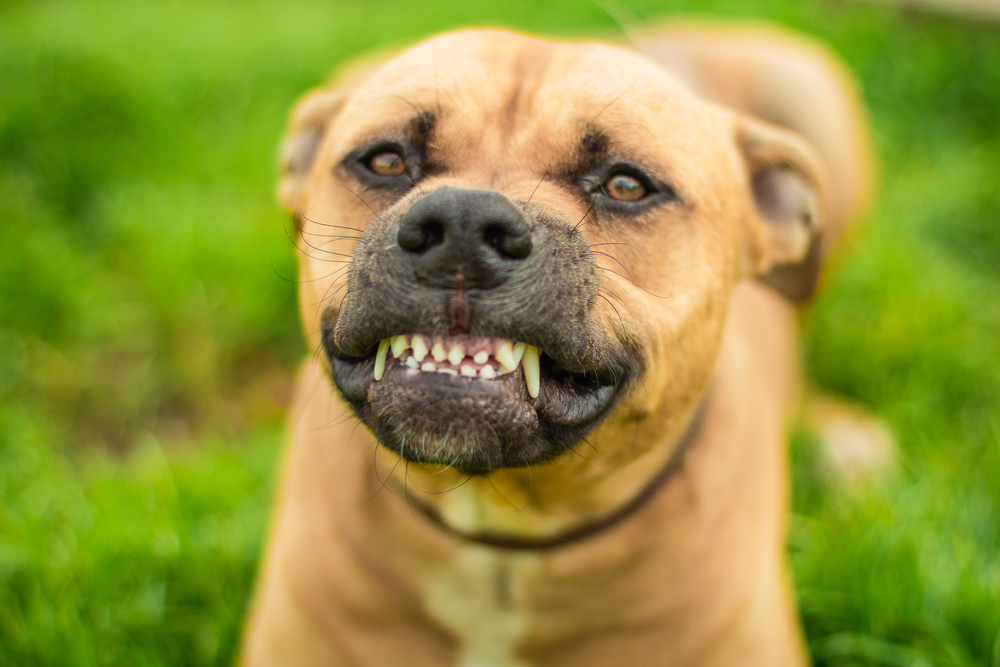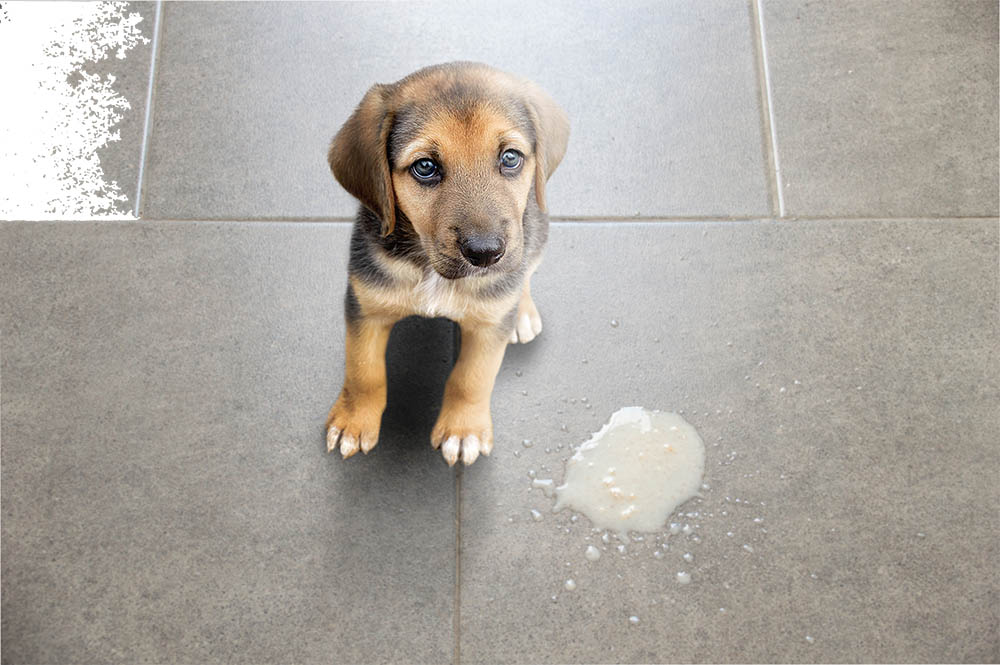Why Do Dogs Grind Their Teeth? 5 Vet-Reviewed Reasons & What to Do

We know our dogs well. We can tell when they’re ready to play, ready for a nap, ready for an adventure—so, it’s only natural to know when they need a little help. If you have noticed your dog grinding their teeth, it can be alarming. Often, this is an issue that needs to be addressed with your veterinarian, but here are 8 potential reasons that dogs grind their teeth.


The 5 Reasons Why Dogs May Grind Their Teeth
1. Gastrointestinal Issues
Have you ever had tummy troubles and you noticed that you might be holding your body a little tight? When similar issues in dogs occur, they might grind their teeth as a means of pain relief. Many different gastrointestinal diseases and conditions can contribute to teeth grinding.
If it’s an issue that you just started to notice, your dog might have a potentially treatable issue such as a stomach ulcer, acid reflux, or other gastrointestinal disorder. If this is an ongoing thing, they might have a more chronic condition that will require veterinary treatment.
Luckily, gastrointestinal issues typically display with other signs as well. You might not have put two and two together yet, but your pet might exhibit some of these other signs.
Signs can include:
- Nausea
- Vomiting
- Diarrhea
- General discomfort
If your vet suspects that a GI issue might be to blame for the teeth grinding, they can explore the underlying cause and help find a solution.


2. Pain
Gastrointestinal pain isn’t the only type of pain that can cause your dog to clench their jaw. Teeth grinding can come from numerous other factors that relate to pain.
Pain can be a little tricky to diagnose because it’s not always as easy to find the issue. For instance if the pain is internal, it might take more investigations. Other times there really aren’t a lot of telltale signs that there’s a big problem with your dog. Ultimately, it is important to look for any other signs that might be going on so that you can discuss them with your veterinarian.
If you give your vet a little heads up, they can do a few simple tests to see if they can find an underlying cause.
3. Temporomandibular Joint Issues
Temporomandibular joint issues encompass inflammatory and degenerative conditions affecting the hinge of the jaw. This plays a pivotal role in the normal chewing process, so any compromising of this area causes difficulties with chewing and mouth movements.
There are many different joint disorders that are held under this blanket term. All can share similar signs, but they might have different root causes. Still, many of the signs of TMJ are the same.
These signs include:
- Pain when chewing
- Teeth grinding
- Difficulty opening or closing mouth
- Appetite loss
- Whining when eating
Some TMJ disorders tend to happen with certain types of breeds, although it doesn’t have to be a breed-specific issue. For instance, TMJ dysplasia may be seen more commonly in certain breeds including Irish Setters and Basset Hounds. Your vet can diagnose this condition and come up with a treatment plan.


4. Jaw Misalignment
Many dogs have underbites, overbites, or deviated jaw lines that do not perfectly match up with each other. There are several breeds that have these potential issues, most famously being Bulldogs, Shih Tzus, Boxers, and other brachycephalic breeds. However, jaw misalignment can also result from spontaneous congenital formations, trauma, and other causes.
It usually is not hard to tell if your dog’s jaw is misaligned. It’s worth discussing with your vet if you think this may be the cause of your dog’s teeth grinding.
5. Dental Disease
Dental disease is an all too familiar issue with dogs, especially as they age. Previously, we may have accepted our dogs’ rotting teeth as a natural part of aging, however what many people don’t know is that it can cause more significant health issues. When dental problems turn into periodontal disease, it can cause infection and inflammation of the tissue surrounding the tooth. Severe dental disease can even cause loss of bone, jaw fracture, and abscesses.
The best route to prevent dental disease is to ensure your dog has proper oral hygiene. You can take them into the vet for routine cleanings and make sure to brush their teeth at home.




Conclusion
Now you understand a few of the reasons why your dog might be grinding their teeth. It’s always best to have this condition assessed by your vet. They can assess the issue and get to the underlying cause.
Featured Image Credit: Markik, Shutterstock



